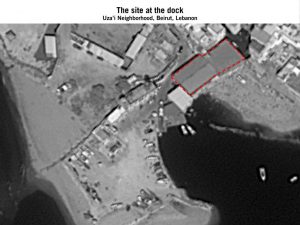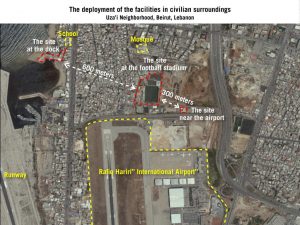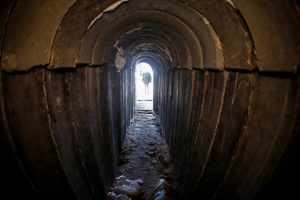
JERUSALEM (Reuters) – The Israeli military on Thursday began to seal off four tunnels that it said had been dug by the Lebanese armed group Hezbollah under the border from Lebanon.
The work was being carried out on the Israeli side of the frontier demarcation, known as the “Blue Line”, military spokesman Lieutenant-Colonel Jonathan Conricus told reporters.
Israel says Hezbollah dug the tunnels with the aim of launching cross-border attacks with backing from its regional sponsor Iran. Hezbollah has yet to comment.
U.N. peacekeepers in Lebanon have said they had so far confirmed the existence of four tunnels which the Israeli army discovered in recent weeks in the vicinity of the border.
Conricus said the military would “neutralize and destroy” the tunnels. Some were built with concrete components while others were dug directly into rock,” he said.
“Preliminary work has started,” Conricus said. “We warn anybody against approaching the openings of the tunnels or staying close to them, all of the tunnels, on the Lebanese side.”
He said Israel had asked the U.N. peacekeeping force, known as UNIFIL, to convey the warning to the Lebanese army.
“The end result is that Hezbollah will no longer be able to utilize these tunnels in order to terrorize Israeli civilians.”
Conricus said the work was likely to be completed in a matter of hours.
Israel has called for UNIFIL to deal with the tunnels on the Lebanese side of the border. The Israeli military has said it holds the Beirut government responsible for breaching Security Council resolution 1701, which ended a 2006 war with Hezbollah.
President Michel Aoun, a political ally of Hezbollah, has said Lebanon is committed to implementing 1701.
The resolution banned all unauthorized weapons between the Litani River and the U.N.-monitored border between Israel and Lebanon. Under the resolution, Lebanon’s army is responsible for security on its side of the border in a zone from which any other armed force, including Hezbollah, is banned.
(Reporting by Jeffrey Heller; Editing by Angus MacSwan)









